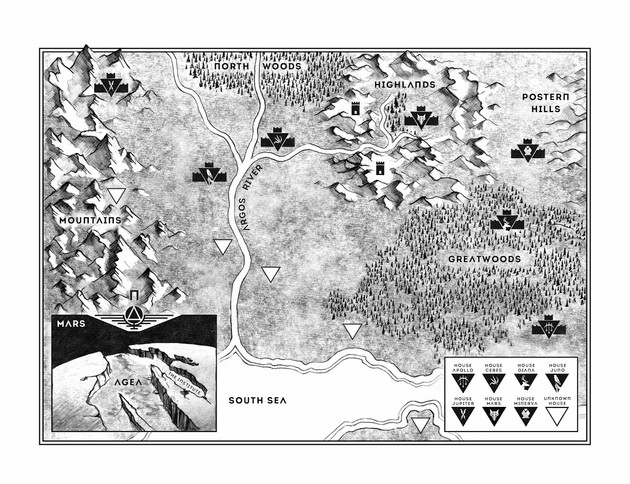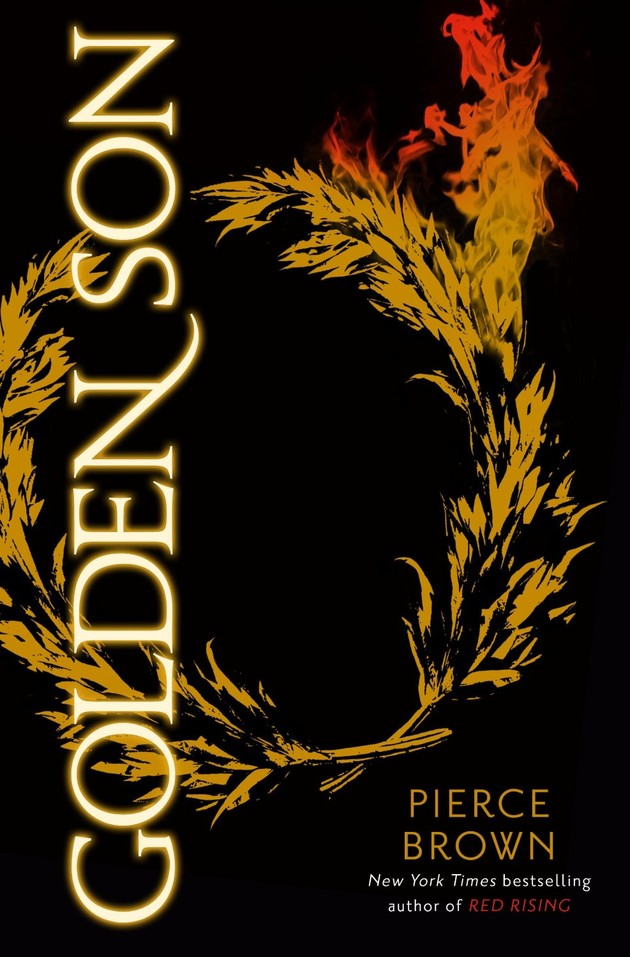Red Rising (10 out of 10) Written by Pierce Brown
Here’s the thing. I’m tired of dystopias. So many authors are out there creating privileged overlords and trampled masses, waiting for a plucky hero or heroine to rise from the rabble and Change the System. There’s nothing wrong with that. I loved “Hunger Games,” which was probably the best in the dystopian genre in recent years. But right now there are so very many of them that even the well-written ones come across as ripoffs. It takes a lot to rise above that.
“Red Rising” has done it. Pierce Brown’s 2014 novel is so good that it transcends genres (or maybe straddles is a better term), while honoring what’s come before. I’ve seen it compared to “Hunger Games” to “Game of Thrones,” but there’s also a solid dose of Harry Potter Percy Jackson, and Ender Wiggins in it. Despite all of those comparisons, and despite the teenaged protagonist, this feels like a much more mature book than any of those Young Adult novels. It’s not classified as YA in the library I picked it up from, and the review I first read in Entertainment Weekly that got me excited to read the book also treated it as an adult science fiction novel.
The story isn’t necessarily new — a teenager from the underclasses on Mars, living in caverns hollowed out of the rock. These “Reds” have been told they slave in mines to supply the materials needed to terraform the surface. Our hero Darrow ends up leaving the mines and on Mars’ surface, which is not only already terraformed, but has cities sparkling like jewels, ruled by “Golds.” There are many colors, each with specialized roles in human society, but Reds and Golds are the ones we hear about most. Darrow is lifted up by strange benefactors who transform him from a Red into a Gold. He’s placed as a mole in a series of war games that will culminate in the winners being taken as apprentices by the most powerful houses on Mars. Darrow’s entire purpose becomes overthrowing the system that’s destroying his friends and family–but first he needs to win the war game that he and dozens of other teenagers are thrown into.
Darrow’s entire purpose becomes overthrowing the system
Most of the elements of “Red Rising” are familiar. Students are grouped into houses (Mars, Apollo, Venus, Minerva, Ceres etc.), who can provide them with advanced tools and weapons to help them advance in the game. Many of the battles, even though it’s described as a war game, are to the death. The game goes on for several months, giving Darrow and the other students time to figure out tactics, overall strategies, and form relationships and loyalties in the ranks. Darrow is a more complex character than some of the other heroes and heroines of dystopian dramas. Pierce Brown gives him a fiery need for justice that outpaces his initial need for revenge. He’s smart, but not the smartest in the group; he’s strong, but not the strongest. He’s propelled by his own will, in a society where most of the people are puppets.
Propelled by his own will, in a society where most of the people are puppets

Pierce Brown is a master at “world building” — giving us details of what life is like on Mars. There’s a map of the terraformed Mars in the endpapers, and I’m a sucker for a map of a fictional world. Westeros, Narnia, Middle Earth–they all hooked me with their maps. Brown’s Mars is intriguing and exciting. The sights, the scents, the genetically modified people and animals. I’ve been fascinated by Mars since I was a pup, and this new vision of the red planet hooked me immediately. There are some books that immerse you so completely in their world that after you finish a chapter, you look up around you and are startled that you’re still in the real world. “Red Rising” is one of those books.
I hate making this comparison again, but if you’re a fan of “Hunger Games,” and you’re ready to up your own game, check out “Red Rising.” It’s the best book I’ve read in a long time, and one that I bought so I can re-read it. That doesn’t happen often. It is the first in a planned trilogy with “Golden Son” coming in January 2015. I’ll be snagging that as soon as possible.

Overall: I’d score it 10 out of 10. Which I almost never do. It’s a rare sci-fi book that reaches beyond tropes and for something bigger. I loved it.